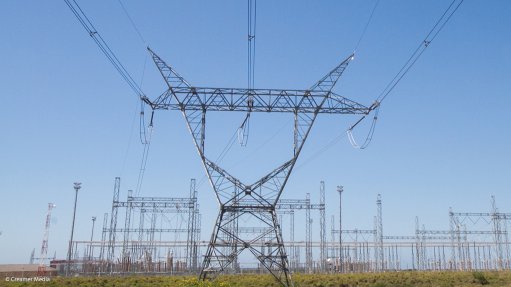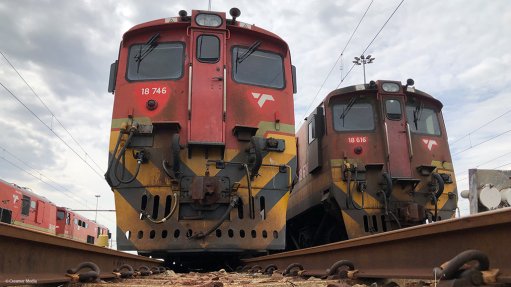Manufacturing's development, employment impact will depend on preparation
The potential developmental benefits from growing manufacturing's contribution to African countries' GDP and the associated growth in employment will only occur if countries and their industries, governments and education systems prepare for the Fifth Industrial Revolution (5IR).
By 2040, about 60% of existing jobs would have disappeared or changed, according to a United Nations Educational, Scientific and Cultural Organisation study. Industries and countries must think about how to change skills development and must not wait until jobs had changed before changing skills development, said association Ecommerce Forum South Africa CEO Dr Alastair Tempest.
In the manufacturing sector, there were opportunities to upskill and reskill employees and to reconsider how things were done in the industry. Further, getting more people and youth into the decent employment created by manufacturing would help to solve many of the challenges of unemployment, poverty and inequality in South Africa and Africa, said professional services firm Nomatshawe Consulting Group CEO Linda Maqoma.
The 5IR was about adding biological ecosystems and people to the technologies of the 4IR, said assurance, advisory and tax services firm PwC Africa Industrials and Services leader Pieter Theron during the second day of the Manufacturing Indaba, in Sandton, on October 23.
"The 5IR presents an opportunity to develop Africa and overcome the challenges of the past. The technology is already available to get us there and, in this convergence, we have the opportunity to re-engineer and redesign our processes, and change how we design products and create value.
"The African Continental Free Trade Area (AfCFTA) Agreement is there and can help us to create new value-adding industries," he said.
However, no matter what technology a manufacturer implemented, if the company and sector were not ready, the technology would not deliver the expected benefits, said information and communications technology and business management services company IRG Group director Patrick Mugumo.
"The 5IR is about integrating humans with technology and working together to optimise processes and production, improve performance and reduce redundancy and input costs," he said.
"It is not just about buying technology, but rather about developing the technology required for your factory with your people. Each company produces in its own way.
"It is not about the technology or about replacing people, but rather uplifting and improving your most important assets, which are your people, to ensure you can produce products to the required quality and achieve the desired results," he said.
Further, a PwC study showed that 97% of CEOs in Africa changed their company's business model during the past five years. However, multinational companies also changed their business models over the past five years. The driver was Covid-19, industrial technology company Hexagon Africa manufacturing VP Shiven Sukraj pointed out.
"Covid made us realise that humans are important in the manufacturing environment. The basis of the 5IR is human-centric evolution of the manufacturing space, whereby companies use technology to complement and enable humans to do things in a bigger and better way," he told delegates.
Africa's manufacturing industry generates about $650-billion a year in revenue and this is projected to increase to $1-trillion if the AfCFTA lowers barriers and enables trade to progress.
Further, Africa had a huge population of young people ready to enter the workplace and industry must enable them with skills and tools for working smarter and better, he noted.
"There is a gap in available skills from the point of view of employers that our education systems provide. Education and skills are the foundation and where we need to start.
"If prepared, this age group can, in four years time, accelerate growth in manufacturing. Another consideration is that Africa will need to pick up some of the slack in manufacturing from China and Europe, and we should be ready to build up Africa's manufacturing for itself and to export. The opportunities are there," said Sukraj.
However, the minimum requirements for countries to take advantage of 5IR and catalyse their innovators include basic elements such as Internet connectivity, power, ports, rail and roads.
These must be in place so that the education system can equip people to take advantage of the infrastructure to build businesses and industries.
"It is a combination of governments, educators, employers and employees that will catalyse the manufacturing industry in Africa," he said.
Article Enquiry
Email Article
Save Article
Feedback
To advertise email advertising@creamermedia.co.za or click here
Comments
Announcements
What's On
Subscribe to improve your user experience...
Option 1 (equivalent of R125 a month):
Receive a weekly copy of Creamer Media's Engineering News & Mining Weekly magazine
(print copy for those in South Africa and e-magazine for those outside of South Africa)
Receive daily email newsletters
Access to full search results
Access archive of magazine back copies
Access to Projects in Progress
Access to ONE Research Report of your choice in PDF format
Option 2 (equivalent of R375 a month):
All benefits from Option 1
PLUS
Access to Creamer Media's Research Channel Africa for ALL Research Reports, in PDF format, on various industrial and mining sectors
including Electricity; Water; Energy Transition; Hydrogen; Roads, Rail and Ports; Coal; Gold; Platinum; Battery Metals; etc.
Already a subscriber?
Forgotten your password?
Receive weekly copy of Creamer Media's Engineering News & Mining Weekly magazine (print copy for those in South Africa and e-magazine for those outside of South Africa)
➕
Recieve daily email newsletters
➕
Access to full search results
➕
Access archive of magazine back copies
➕
Access to Projects in Progress
➕
Access to ONE Research Report of your choice in PDF format
RESEARCH CHANNEL AFRICA
R4500 (equivalent of R375 a month)
SUBSCRIBEAll benefits from Option 1
➕
Access to Creamer Media's Research Channel Africa for ALL Research Reports on various industrial and mining sectors, in PDF format, including on:
Electricity
➕
Water
➕
Energy Transition
➕
Hydrogen
➕
Roads, Rail and Ports
➕
Coal
➕
Gold
➕
Platinum
➕
Battery Metals
➕
etc.
Receive all benefits from Option 1 or Option 2 delivered to numerous people at your company
➕
Multiple User names and Passwords for simultaneous log-ins
➕
Intranet integration access to all in your organisation


















